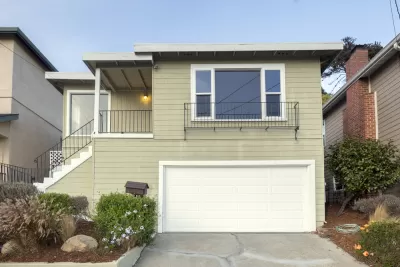Last year's tax reform bill seriously curtailed the mortgage interest deduction, despite its reputation for untouchability. Perhaps lawmakers should get rid of it entirely.

In the Tax Cuts and Jobs Act of 2017, Republican lawmakers substantially reduced the mortgage interest deduction. Jordan Weissmann writes, "The benefit for homeowners was once considered a politically untouchable upper-middle-class entitlement, but the GOP aggressively curtailed it in order to pay for cuts elsewhere in the tax code."
The change is predicted to more than halve the deduction's effects. Weissmann cites a recent report from Congress’s Joint Committee on Taxation. "The report predicts that just 13.8 million households will subtract mortgage interest from their 2018 returns, down from 32.3 million in 2017. The total cost of the deduction will fall from $59.9 billion to $25 billion—a drop of about 58 percent."
While fewer homeowners will take the deduction, its benefits will be skewed toward the well-off to an even greater degree. "The MID has long been criticized for being a large giveaway to well-off blue staters with expensive homes. Going forward, it will be a smaller giveaway but an even more regressive one."
Weissmann argues that given the chance, Democratic lawmakers could probably kill off the deduction with few adverse effects, especially given a robust housing market.
FULL STORY: Republicans Gutted the Mortgage Interest Deduction. Democrats Should Finish It Off.

Maui's Vacation Rental Debate Turns Ugly
Verbal attacks, misinformation campaigns and fistfights plague a high-stakes debate to convert thousands of vacation rentals into long-term housing.

Planetizen Federal Action Tracker
A weekly monitor of how Trump’s orders and actions are impacting planners and planning in America.

In Urban Planning, AI Prompting Could be the New Design Thinking
Creativity has long been key to great urban design. What if we see AI as our new creative partner?

King County Supportive Housing Program Offers Hope for Unhoused Residents
The county is taking a ‘Housing First’ approach that prioritizes getting people into housing, then offering wraparound supportive services.

Researchers Use AI to Get Clearer Picture of US Housing
Analysts are using artificial intelligence to supercharge their research by allowing them to comb through data faster. Though these AI tools can be error prone, they save time and housing researchers are optimistic about the future.

Making Shared Micromobility More Inclusive
Cities and shared mobility system operators can do more to include people with disabilities in planning and operations, per a new report.
Urban Design for Planners 1: Software Tools
This six-course series explores essential urban design concepts using open source software and equips planners with the tools they need to participate fully in the urban design process.
Planning for Universal Design
Learn the tools for implementing Universal Design in planning regulations.
planning NEXT
Appalachian Highlands Housing Partners
Mpact (founded as Rail~Volution)
City of Camden Redevelopment Agency
City of Astoria
City of Portland
City of Laramie





























